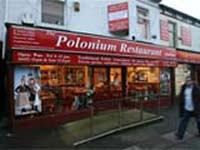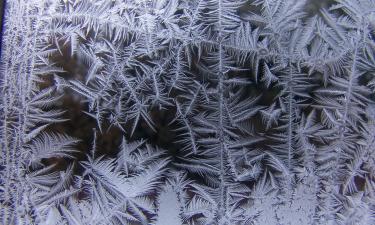Key witness in Litvinenko case to meet British investigators
Andrei Lugovoi, a key witness in the radiation poisoning case of former Russian agent Alexander Litvinenko, will meet with British investigators on Wednesday, a business associate said.

Vyacheslav Sokolenko, who has cooperated with Lugovoi in business ventures, told The Associated Press that the meeting would take place, but declined to state the time or place. The prosecutor general's office refused to confirm the meeting, but the ITAR-Tass news agency quoted Lugovoi as saying it was scheduled.
"I have been officially informed that our meeting with Scotland Yard detectives will take place today and proceed with the participation of employees of the Russian Prosecutor General's Office," Lugovoi was quoted as saying.
Litvinenko, 43, died on Nov. 23 in London. Toxicologists found polonium-210, a rare radioactive substance, in his body.
Lugovoi is a former security service agent who now has various business interests, including a share of a large beverage and wine plant in Russia and security services. He is among the people whom Litvinenko met on Nov. 1, the day he is believed to have fallen ill.
Lugovoi used to be head of security at ORT, the Russian television network that Kremlin-connected tycoon Boris Berezovsky controlled before he fell out with President Vladimir Putin and his self-exile to London to avoid what he claims are politically motivated fraud charges. He served a brief jail term in 2002 for allegedly helping an executive of Aeroflot airlines, then also tied with Berezovsky, to escape pre-trial detention.
Lugovoi traveled to London three times in the month before Litvinenko's death and met with Litvinenko four times, according to Russian media. He said Litvinenko had contacted him from London about a year ago with business-related proposals, and that they had met intermittently in London since then. Lugovoi said Litvinenko acted as a translator and fixer in meetings with British businesses.
Lugovoi, who has said he is undergoing tests for possible radiation poisoning, said his doctors had given permission for the meeting with investigators, ITAR-Tass reported. Sokolenko would not comment on whether the tests had been completed or their results.
Some media have speculated that Lugovoi is a major suspect in the killing. But Alexander Goldfarb, a friend of Litvinenko's, said he doubted that.
"I frankly doubt that he was the hit man because hit men are usually people hiding in the dark," Goldfarb told the AP. "I think it's one of his associates, I think he was used unawares ... Now his life is in danger because he knows a lot."
On Tuesday, Russian Prosecutor-General Yuri Chaika said that his office would fully cooperate with the British investigators, but he said that all figures in the case whom the British investigators wanted to interrogate would be questioned by Russian prosecutors in the presence of the British officers.
The case has further strained already tense relations between Russia and Britain, which has infuriated the Kremlin by giving asylum to tycoon and fierce Kremlin critic Boris Berezovsky and Chechen rebel envoy Akhmed Zakayev in addition to Litvinenko, a former Federal Security Service officer.
Chaika dismissed allegations that Russia could trade suspects in Litvinenko's murder for Berezovsky and Zakayev. He said that British authorities, which have rejected several Russian requests to extradite them, eventually would have to change their mind, reports AP.
Bob Ayers, an analyst at the Chatham House think-tank and former U.S. intelligence officer, said it appeared that the Russian government was cooperating in the investigation.
"They allowed British police in to question Russian suspects. But they are downplaying it in their press," Ayers told the AP in London. "They will collaborate in the true Russian manner it will be a contest to see who will be more bureaucratic, the Scotland Yard policemen or the Russian policemen."
Subscribe to Pravda.Ru Telegram channel, Facebook, RSS!





